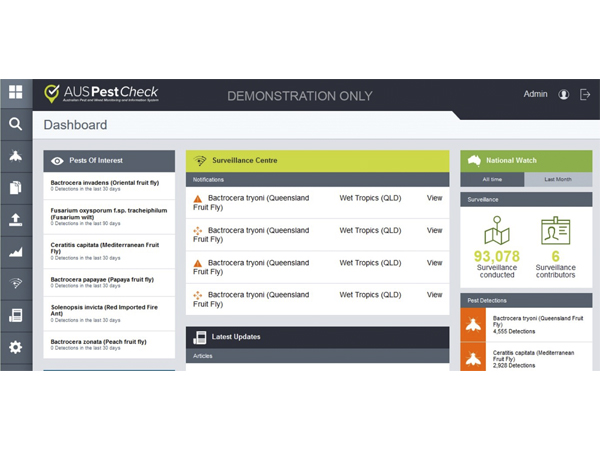Real time mapping of plant pests
By Plant Health Australia
All around Australia, farmers, government officers, agronomists and other consultants make checks of crops looking for plant pests and weeds. While it’s helpful for farmers to know about any pest problems on their property, without national coordination the full benefit of this vast surveillance activity has not been harnessed.
With funding provided by a National Landcare Programme Innovation Grant, Plant Health Australia (PHA) has developed an innovative tool—AUSPestCheck—to collect, track, analyse and display plant pest surveillance data.

The AUSPestCheck dashboard features a user friendly graphic interface.
The system provides users with a real-time picture of pest numbers and spread, and can handle information collected from both general and targeted surveillance activities in agricultural and environmental settings. Data can be entered using mobile devices—handy for field checks—and all information is held in a secure cloud environment.
Added together, the data forms maps of pests and weeds, or their absence, and can track the spread of pests over time. For example, PHA used the system to track the spread of the new pest Russian wheat aphid from South Australia across southeastern grain growing regions in 2016.
On the other hand, having records that pests are not present is also important because such evidence can be crucial for accessing markets for our produce overseas.
Nearly 300,000 records have been captured. So far it is primarily state government officers entering and accessing data—the system is not yet accessible to the public—but the plan is to broaden accessibility down the track.
Reports are generated in real time, with access to the data available to all contributors. In-built alerts advise users when the numbers of a target pest increase above a threshold or when a pest moves into a new area. The search function allows users to look back in time to see how pest numbers and spread have changed.
Plant Health Australia is the not-for-profit coordinator of the plant biosecurity system in Australia. For more information email [email protected] or phone 02 6215 7700.



